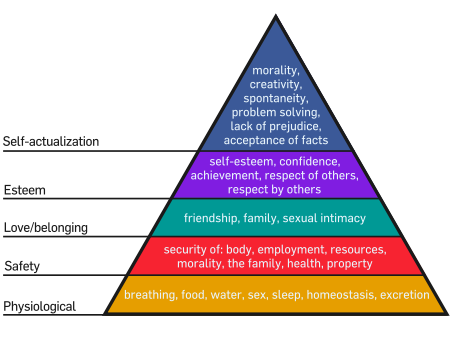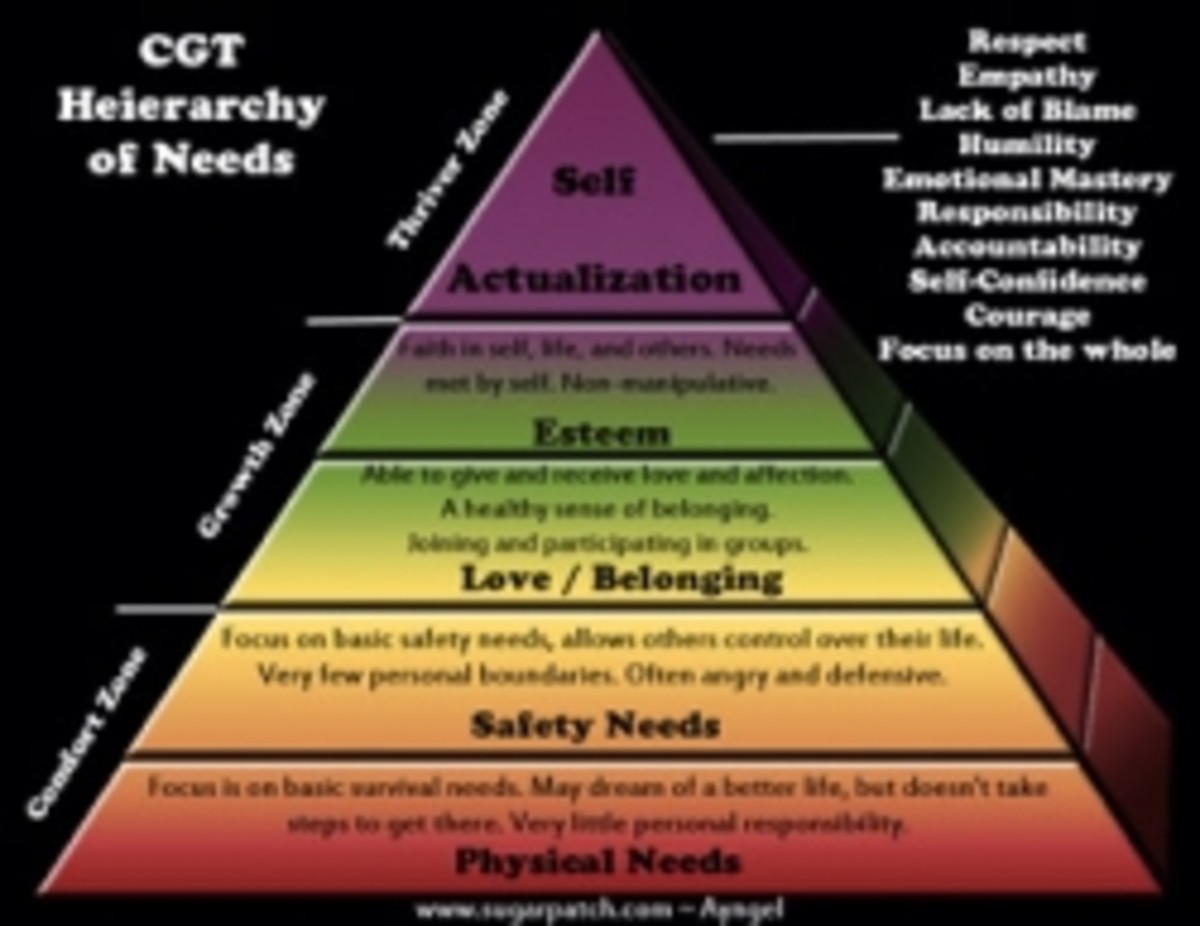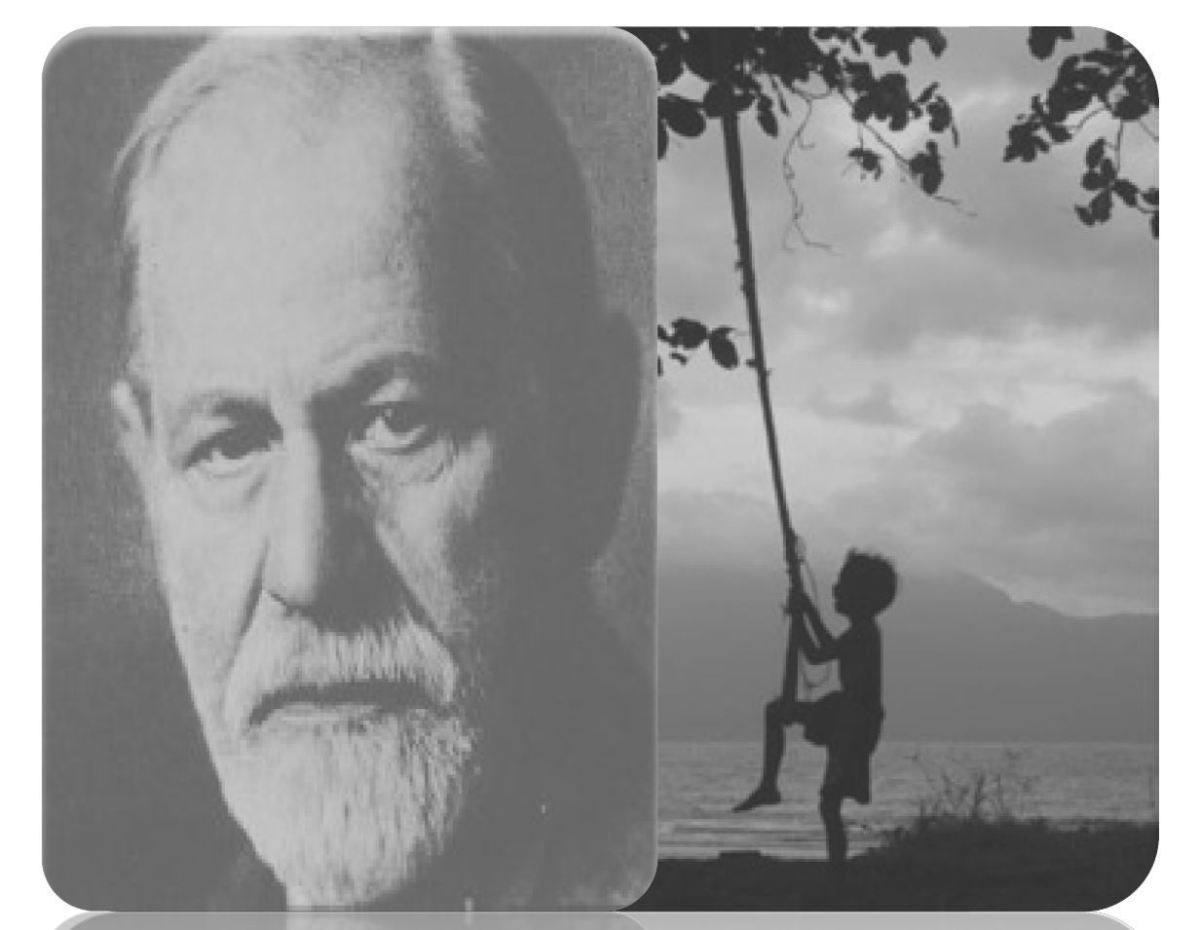Abraham Maslow: His Contributions to Psychology
HIerarchy of Needs Pyramid

Who is Maslow and Why Is He Important Anyway?
Abraham Maslow was born in Brooklyn, New York in 1908. He started his studies at New York City College. Eventually he went to graduate school at the University of Wisconsin to study Psychology. While at Wisconsin, Maslow pursued an original line of research in primate behavior and sexuality. Between 1937 and 1951 Maslow served on the faculty at Brooklyn College. It was then that he met his two mentors, Ruth Benedict and Max Wertheimer. In fact, Maslow based much of his early research on the behaviors of his colleagues. From that point on Maslow began focusing his research on mental health and human potential. He taught at Brooklyn College for 14 years before he went to Brandeis University to Chair the Psychology Department. Maslow was elected to the American Psychological Association in 1968 and two years later (in 1970) Maslow died as the result of a fatal heart attack.
Maslow made many contributions to the field of Psychology, especially Humanistic Psychology. One of Maslow’s major contributions focused on human needs. This is what Maslow termed the Hierarchy of Needs. In Maslow’s hierarchy people started at the bottom of the pyramid and transcended to the final stage. However, Maslow felt that some people may not actually reach the last stage. In the hierarchy the most basic needs would be met, such as water, air, and food. As a person progressed up the ladder they would have needs such as security, social, and ego or esteem needs met. In the last stage, a person would reach his/her fullest potential which Maslow termed self actualization. In addition, Maslow also theorized that human potential lies within a person’s inner resources and if the person could remove obstacles within his/her life then growth could be achieved.
In my opinion, Maslow’s theories on human potential seems to be valid. I believe that people do transgress through stages in life and each stage must be achieved before a person can move to the next. It is evident from birth that this process takes place with parents responsible for meeting the basic needs of their child. Even as adults people need to have such basic needs met in order to thrive. As a person grows older his/her needs become more complex which eventually leads to the need for acceptance and a purpose within society.
Additionally so, I would tend to agree with Maslow’s theory on human potential. Maslow had stated that potential lies within the desire to achieve more, to be more whole as a person. Most people do try to achieve their best in order to live a productive life. People are always looking for ways to better themselves so they can gain more of an understanding of life and themselves. Not only that, but I feel that Maslow’s theory on mental health could be the key to many of today’s diseases. For example, when a person is told that he/she has a terminal illness he/she could react two ways: He/she could allow this to be his/her downfall or he/she could allow this to be cause for a fight for his/her life. In the essence, people who react with a positive frame of mind are more likely to fare well for a longer period of time. The same holds true for any other instance where a negative stressor occurs. A person can allow this to be his/her downfall or he/she can use this as his/her motivator. Personally speaking, I can attest to how such experiences have impacted my own life. I grew up in a deprived house. A house where both parents were minimally educated and had a negative outlook on life. As I grew older I realized that by submitting to what I had been raised in I would only be cheating myself. I knew that I needed to strive for more in the most dire of circumstances. If I hit a hurdle then it was up to me to clear it and move on. With that said, Maslow’s theory on human nature seems to be an accurate representation of how people react to their environment and its stressors.
References
Dowling, Mike., (2002) The Electronic Passport Homework to Abraham Maslow. [On- line].
The McGraw- Hill Companies., (2002) Biography: Abraham Maslow. [On-line]. Available: internet
PBS online., (1998) A Science Odyssey: People and Discoveries: Abraham Maslow.









